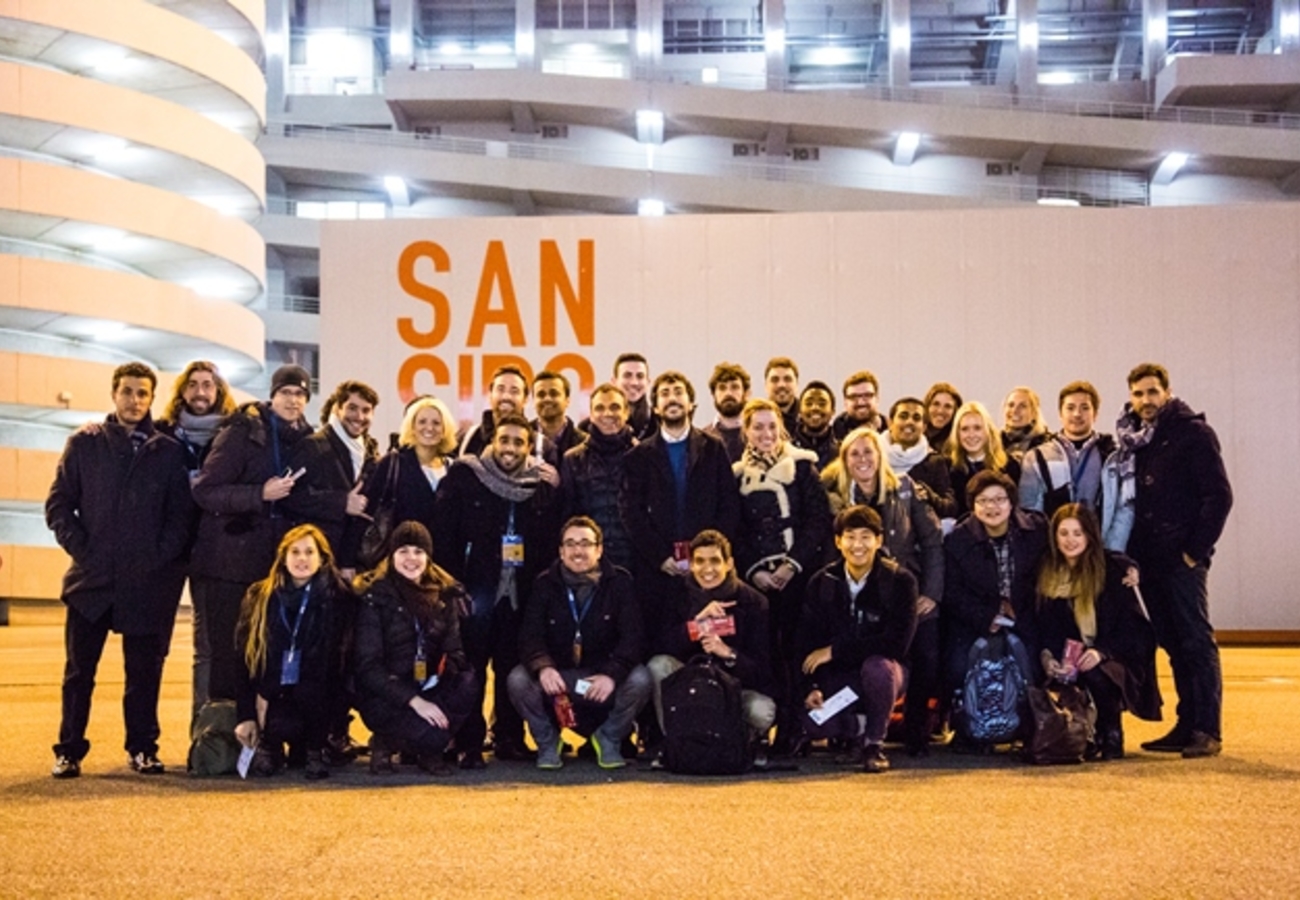FIFA Master 15th edition: summary of the last month spent in Milan!

It was not with bright eyes or light hearts that we started our last month in Milan! This was due to a combination of the brilliant intensity of the module, which transported us through the crucial “need to knows” of the various disciplines of sports management in great depth for such a short time, but also because of the wonderful experience that we have enjoyed in such a great city as Milan - A place rich in sport, history, culture and entertainment.
March was dedicated to our final sub-module, Sports Event Management, coordinated by Professors Marco Sampietro, John Genzale, Marco Morelli and Mikkel Draebye, who conveyed to us a wealth of information culminating in our final exam at SDA Bocconi.
Professor Marco Sampietro began the sub-module by highlighting the main aspects of sports event organization, from origination to completion, as portrayed in the “sports events lifecycle model”. Within his explanation, Professor Sampiertro highlighted the critical success factors for sporting events, including managing stakeholder expectations and scope identification. Prof. Sampietro taught us key skills including how to perform a Work Breakdown Structure and many forms of project planning and processes, such as resource management and event scheduling. Finally, we discussed risk management and risk mitigation, using models based on NASA procedures in order to hypothesize the risks associated with hosting major sporting events and how to plan risk management accordingly.
Within Professor Genzale’s interactive sessions we compared the differences between club and commercial models in sport management, and postulated on the differences between drivers of performance evaluation for the two systems. We also studied the areas of revenue generation in sport systems, culminating in the facility generated revenue model that we increasingly see in sport today. Professor Genzale’s sessions were very interactive and the class very much enjoyed evaluating franchise value within the commercial sports model and debating the future of the sports industry. Finally, we considered facility operations in terms of safety and security by evaluating contingency and emergency plans implemented by organizations such as FIFA.
Professor Morelli next came back to see us with more figures and calculations - skills which are invaluable to any prospective sport manager. Crucially we focused on the budgeting process in respect to sporting events. This enabled us to learn how to calculate important rates in order to float a successful event, such as ticket price calculation and minimum spectator volume in order to break-even.
Professor Mikkel Draebye swiftly followed Professor Morelli, to discuss how the birth of an idea can develop into successful implementation and execution of a project, from the perspective of both academic and that of an entrepreneur. As well as the various processes of entrepreneurship, we were also taught how to map the business model canvas and its application to sporting events. Finally, Professor Draebye taught us the key elements in terms of how to write a business plan and the various forms it may take.
All of this learning culminated in an exam which wrapped up the key skills learnt throughout this module as the class was requested to plan and pitch a new major sporting event to a stakeholder. The exam really highlighted to us the clear plan of the scientific directors and SDA Bocconi faculty throughout the module as we were able to see with clear examples just how much we had learnt and how far we had come in three short months.
However the module was not over yet, far from it, for we still had the opportunity to meet and hear from more key figures in the international sporting industry in the form of guest speakers.
Such speakers included: Court Jeske, Vice President, International Business, Major League Soccer (MLS) & Soccer United Marketing (SUM), who graduated from the 4th edition of the FIFA Master. Mr Jeske presented a fun and fact filled session which detailed the current MLS structure, along with its future plans for development. This included the MLS brand and the way in which MLS looks to distinguish itself from other sports in the very competitive American market.
Edoardo Alzetta and Marco Beretta talked us through the ticketing system adopted by major events such as EXPO 2015 and which would take place in Milan later in the month. Their system demonstrated a great example which could be applied to major sporting events such as the FIFA World Cup and the Olympic Games. The quality of the event description and the appealing presentation definitely had a strong impact, with many of the class wanting to return to Milan in May to attend the EXPO event!
Anthony Scanlon, Executive Director of the International Golf Federation (IGF), conducted an extremely interesting session in which he explained the formation, structure and scope of the federation. Specifically, he highlighted how the IGF is different from other international federations in terms of the key stakeholders being professional organisations (such as the PGA and the Master tour), as opposed to National Associations. Mr Scanlon presentation not only gave us a glimpse into the world of golf governance, but also contextualized the different ways in which various International Federations may operate.
Sjoerd Griffioen recounted his experience as Assistant Venue Director during the 2014 Brazil FIFA World Cup. Mr Griffioen’s on the ground experience resonated all the more within the class due both to the fact that Mr Griffoen is a FIFA Master alumni and the fact that many members of the 15th edition class had such fond professional and personal experiences at the Brazil World Cup. Mr Griffioen described the roles and responsibilities of a Venue Director during a major sporting event in great detail. His talk was also illustrated by interesting facts, figures and match operation statistics.
On our final day at SDA Bocconi we were treated to a session with Michael Kraeutlein and Jamie Gutierrez, who both work in Talent Acquisition, at Adidas. Mr Kraeutlein and Ms Gutierrez held a workshop in conjunction with the CIES career advisors, which largely comprised of a presentation about Adidas as a company and the opportunities available within their organization. Highlights of the session were learning about the extremely positive international culture that infiltrates every part of the Adidas work place and learning about the Adidas traineeship programme.
With the end of this session our term in Milan was complete. We had arrived in the city as 31 students from a wealth of different academic backgrounds. We now left with a clear and well structured idea of the roles and responsibilities of global sports managers, having been taught key skills and strategic processes required in contemporary sport.
The module at SDA Bocconi was intense, but extremely enriching both personally and professionally. We are sad to go, but now look forward to our next module in Law at the University of Neuchatel in Switzerland. On behalf of the 15th edition of the FIFA Master, we would like to thank all of the faculty, guest speakers and administrative staff involved with the SDA Bocconi Management module, and of course, the CIES scientific directors, for the quality of the programme and their support along the way.
Kirsty and Guglielmo









